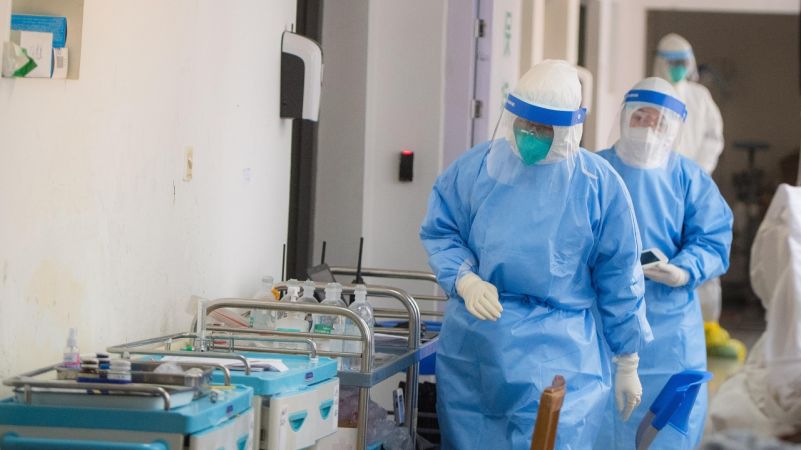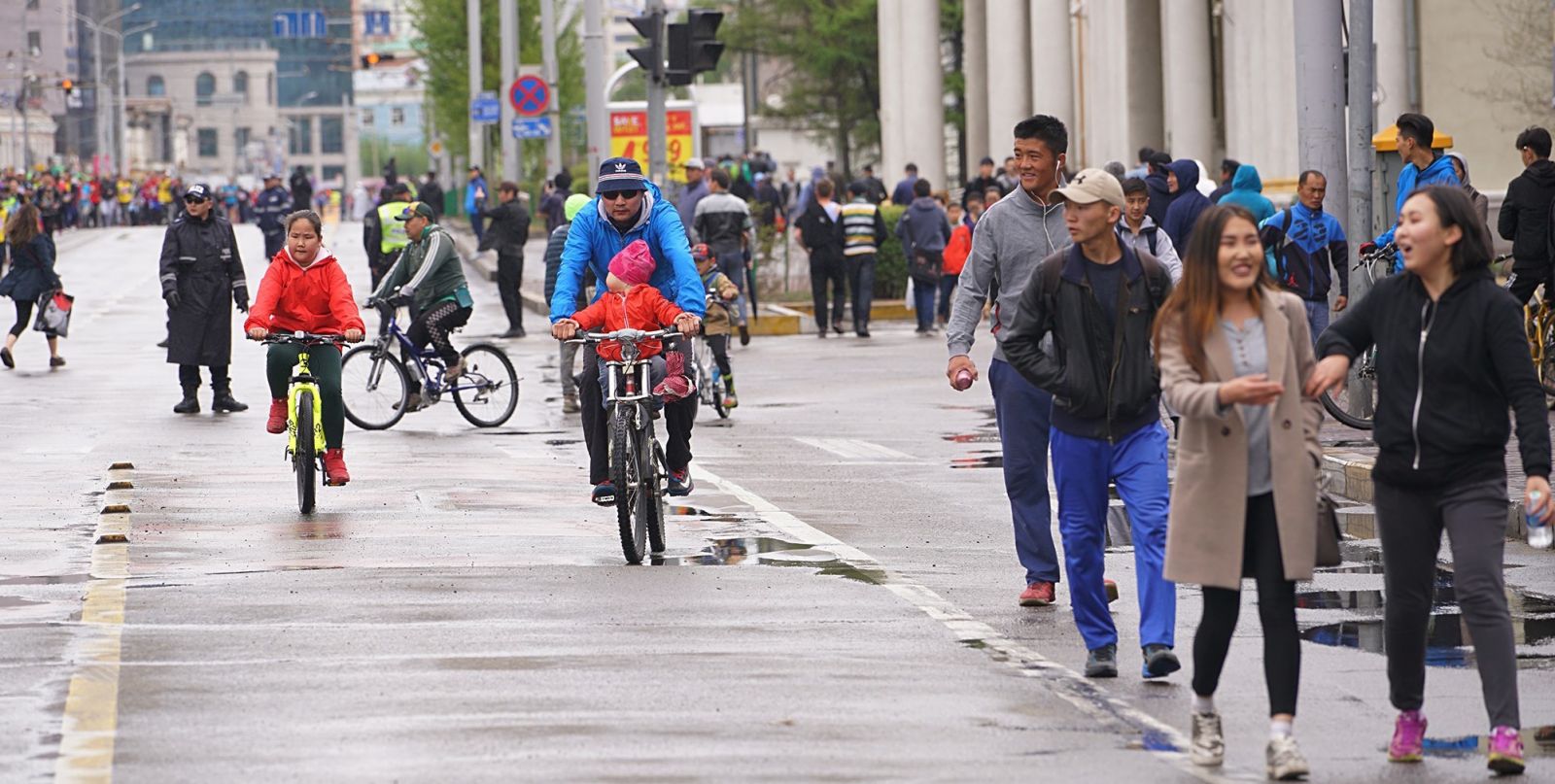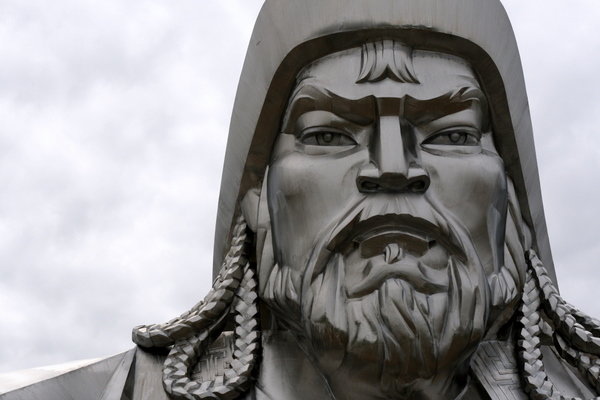Events
| Name | organizer | Where |
|---|---|---|
| MBCC “Doing Business with Mongolia seminar and Christmas Receptiom” Dec 10. 2025 London UK | MBCCI | London UK Goodman LLC |
NEWS

Aranjin Resources Announces Joint Venture on New Mongolian Copper & Nickel Discovery www.juniorminingnetwork.com
Ulaanbaatar, Mongolia--(Newsfile Corp. - February 1, 2022) - Aranjin Resources Ltd. (TSXV: ARJN) ("Aranjin") is very pleased to announce that it has have entered into a term sheet agreement (the "Term Sheet") which sets out the terms for an exploration joint venture with ION Energy Ltd (the "Joint Venture"). The Joint Venture will consist of both Parties granting one another reciprocal exploration rights on their respective exploration licences within Mongolia.
Both ION and Aranjin will leverage one another's expertise in their respective metals, with Aranjin being granted a right to explore ION's properties for base metals (including copper, lead, zinc, nickel, cobalt and associated metals), and ION being granted a right to explore Aranjin's properties for lithium. This structured approach is aimed at enlarging both Parties' exploration area within the mineral rich regions of Mongolia, thus ensuring that both ION and Aranjin maximize their chances of carrying a property to the development stage.
The area covered by the Joint Venture consists of all mineral rights in Mongolia currently held by the Parties, which consists of the Sharga Project, the Bayan Undur Project, the Baruun Tal Project (pending final purchase), the Baavhai Uul Project, the Urgakh Naran Project and all mineral rights acquired by the Parties in Mongolia after the date of entering into the Joint Venture.
Highlights:
Maiden auger drill program was completed in the fall of 2021 at ION's Baavhai Uul project and included 222 auger holes for a total of 1,304.5 meters
To date, only 50% of the assay samples have been returned
Initial drilling results are highly encouraging with a new Copper and Nickel discovery at the center of the Baavhai Uul licence
Drill hole AU-83 returned results of up to 2,150 ppm Nickel from 5.0 to 5.5m depth in clay samples and average 202 ppm Nickel. Numerous auger holes with over 200 ppm and up to 480 ppm Nickel were assayed in the eastern area of the licence and these will be subject to follow up infill drilling programs
Drill hole AU-85 returned up to 570 ppm Copper from 2.5-3m depth and averaged 103 ppm Copper. seven auger holes that were drilled in the eastern part of the licence returned over 100 ppm Copper
The copper geochemical anomaly is over 4 sq km in size and the Nickel Geochem anomaly is over 2 sq km in size, anomalies located in the central part of the licence overlap each other.
Auger holes were drilled to a maximum depth of six meters with samples being collected every 0.5 meter and were located over 1 kilometer apart. This represented a broad pass of the licence prospectively. The remaining results from this drilling program are expected before the end of February 2022.
The main aim of Aranjin's 2022 exploration program is to expand the revealed Nickel and Copper high grade anomalies and plan to drill infill auger holes in a 250m grid. A total of 321 holes are planned over 1,926 meters. The Aranjin drilling program is scheduled to begin no later than February 5, 2022. Aranjin also plans to test the high grade zones using IP Geophysics and diamond drill holes at shallow depth. ION will continue its exploration with Hydrogeological sampling and advanced Lithium exploration techniques over the coming months.
Joint Venture Highlights
ION and Aranjin will grant each other a reciprocal right to explore one another's properties, with Aranjin earning an 80% interest and ION earning a 20% interest in all base metal projects discovered on ION's properties, and ION earning an 80% interest and Aranjin earning a 20% interest in all lithium projects discovered on Aranjin's properties, subject to existing royalties.
If a Party has prepared a Feasibility Study (as defined by the Canadian Institute of Mining, Metallurgy and Petroleum) in respect of a deposit on a licence of the other Party, and the Party wishes to undertake development of the deposit (the "Development Project"), the Parties shall negotiate a separate joint venture or similar agreement governing the development and operation of the Development Project, with the initial participating interest being 80% for the Party initiating the Development Project, and 20% for the other Party.
Each Party will bear their own costs of exploration on the properties of the other Party, with ION obligated to expend at least USD$500,000 and Aranjin USD$3,000,000 over the three (3) years commencing from the date of the Term Sheet. Aranjin shall be entitled to satisfy any shortfall of its required expenditures in cash up to USD$2,500,000.
If a Party fails to prepare a Feasibility Study in respect of a deposit on the licence of the other Party within five (5) years of the date of the Term Sheet, the rights of the non-performing Party under the Term Sheet will be terminated.
Aranjin shall appoint Ali Haji, Chief Executive Officer of ION, to the board of directors of Aranjin, and further appoint him as President and Chief Executive Officer of Aranjin.
Matthew Wood will resign as President and Chief Executive Officer of Aranjin and will continue to act as Executive Chairman of Aranjin.
Aranjin intends to issue 1% of the outstanding common shares to Mr. Haji as an inducement to act as President and CEO of Aranjin. The common shares issued to Mr. Haji will be subject to a hold period of four months and a day.
Ali Haji, incoming President and CEO of Aranjin, commented: "This joint-venture allows for ION Energy to work alongside Aranjin on two very important elements that are required for the clean, green energy revolution. The synergistic makeup of each company will allow for this joint-venture drive the electrification of the future and represent the largest lithium and copper exploration licence holders in Mongolia. We look forward to working together and receiving the balance of our exploration results."
Matthew Wood, Executive Chairman of Aranjin, noted: "With the promising early results and evidence of copper at the Baavhai Uul Project we are excited to expand our portfolio of prospective copper assets. Partnering with ION allows us to diversify our asset footprint and our exploration spend."
Final approval of the Joint Venture and the share issuance to Mr. Haji remains subject to the approval of the TSX Venture Exchange.
About ION Energy Ltd.
ION Energy Ltd. is committed to exploring and developing Mongolia's lithium salars, which includes the Baavhai Uul and Urgakh Naran Project. ION's flagship, 81,000+ hectare Baavhai Uul lithium brine project, represents the largest and first lithium brine exploration licence awarded in Mongolia. ION Energy is well-poised to be a key player in the clean energy revolution, positioned well to service the world's increased demand for lithium. Information about the Company is available on its website, www.ionenergy.ca, or under its profile on SEDAR at www.sedar.com.
About Aranjin Resources Ltd.
Aranjin Resources Ltd. is committed to exploring and developing its prospective copper projects, the Sharga Project, the Bayan Under Project and the Baruun Tal Project (pending final purchase) located in Mongolia. Information about the Company is available on its website, www.aranjinresources.com, or under its profile on SEDAR at www.sedar.com.

Mongolia records 893 new COVID-19 cases www.xinhuanet.com
Feb. 13 (Xinhua) -- Mongolia's COVID-19 tally rose to 457,372 after 893 new infections were reported in the past 24 hours, the country's health ministry said Sunday.
The new cases were all local transmissions, and among them, 465 were detected in capital Ulan Bator, which is the region hit hardest by COVID-19 and home to more than half of the country's population of 3.4 million.
Meanwhile, the national death toll increased to 2,073 after one more COVID-19 patient died in the past day, the ministry said.
So far, 66.8 percent of the country's total population have received two COVID-19 vaccine doses, while more than 1,013,900 people aged over 18 have received a third dose.
More than 89,800 Mongolians have received a fourth dose, which the country started to administer from Jan. 7 on a voluntary basis.

Mongolia: Cases against newspaper and three activists dismissed www.ifex.org
Globe International Center noted that recent court decisions involving a newspaper and several activists favor the rights of citizens to freedom of expression and peaceful demonstrations.
Globe International Center welcomes recent court decisions in favor of the rights of citizens to freedom of expression and peaceful demonstrations.
On 18 October 2021, the civil defamation case brought against Ugluunii Sonin (Morning Newspaper) daily newspaper was dismissed by the Chingeltei District Civil Court of First Instance. The court decision was based on the abandonment of a claim by the plaintiff, a state-owned company called Mon-Atom. The company filed a civil defamation lawsuit against the newspaper over an article of 22 April 2021 titled ‘Uranium hazards are destroying Dornogovi’s migratory gazelles’, written by environmental journalist Ulziibayar Sanjaajav, and demanded that the newspaper publish a retraction and pay 100 million Mongolian tugrik (approx. US$38,065) in compensation.[1]
Furthermore, on 11 January 2022, the Capital City Criminal Court of Appeals dismissed a case brought against Amartuvshin Dorj and others for organizing a flash mob in protest against the restrictive pandemic regulations of the government in June 2021. Amartuvshin informed the public about the court decision through his social media accounts. Earlier, on 18 November 2021, the First Instance Court of Sukhbaatar District ruled that Amartuvshin Dorj and others had acted in violation of quarantine protocols, and imposed a fine of 500.000 Mongolian tugrik (approx. US$190).[2]
Likewise, on the same day (11 January 2022) the First Instance Criminal Court of Sukhbaatar District dismissed a case launched against Odbayar Erdene and Mongolkhuu Davaajamts, coordinators of #NoDoubleStandart and #NoNaadam movements. Previously, they were accused of illegal demonstrations by the District Police Department.
Meanwhile, the implementation of the Law on Coronavirus (COVID-19) prevention, fight, and mitigation of its socio-economic impact of 2020, which puts certain restrictions on fundamental rights including the right to free expression and the right to peaceful assembly, has been extended until the end of June 2022.

4,000-year relic unearthed in Mongolia www.xinhuanet.com
HOHHOT: Archaeologists have unearthed a relic site dating back 4,000 years in north China's Inner Mongolia Autonomous Region.
The site, which contains relics from the ancient Zhukaigou culture, is located in the city of Ordos and covers an area of 500,000 square meters, according to the regional institute of cultural relics and archaeology.
In 2021, the institute carried out a rescue excavation at the site, discovering eight housing sites, 30 pits and ditches, 31 tombs, as well as over 150 items of pottery, stone tools and jade, among other articles.
Experts noted that a large number of the jade articles and shellfish ornaments were not local products, but came from distant locations, indicating that people who lived here had close cultural and trading exchanges with those in other areas.
They added that the bronzes collected at ground level and the smelting sintered blocks indicate the likelihood that bronze was smelted, cast and used at the site.

New Rio Tinto chairman to weigh CEO’s future amid toxic culture crisis www.reuters.com
The incoming chairperson of Rio Tinto will review the position of CEO Jakob Stausholm to determine whether he is suitable to lead an overhaul of the company’s toxic work culture, two people familiar with the matter said.
Dominic Barton, a former diplomat who takes up the role of chairman in May, could remove Stausholm if he decides Rio would be better served by a leader who was not in the upper echelons of the organisation in recent years, the sources told Reuters.
It was Stausholm who commissioned an external report released by Rio on Jan. 31, that shone a light on a company culture rife with sexual harassment, racism and bullying over the past five years, including 21 allegations of rape, attempted rape or sexual assault. The report, which was based on the experiences and views of more than 10,000 employees, did not ascribe individual blame to any executive or worker.
Rio Tinto declined to comment further on the culture of bullying and on whether the board has confidence in Stausholm and the company’s management. It referred queries back to a Reuters interview with Stausholm on Feb. 1, shortly after the report was released. Rio said Barton, who joins the board in April, was not available to comment.
READ: Rio Tinto report reveals culture of sexual harassment, bullying and racism
“What we are saying today, very loud and clear, is what constitutes acceptable and not acceptable behaviour and we will not tolerate non-acceptable behaviour and we will deal with that,” the CEO said at the time.
“In a way that’s kind of the easier part. The more difficult part is to address the root causes,” said Stausholm, adding that he would push for change “now I know what I know”.
Stausholm didn’t respond to an emailed request for comment.
Rio Tinto won praise from many investors for publishing the damning 85-page report by former Australian sex discrimination commissioner Elizabeth Broderick, and pledging to implement all 26 recommendations, including creating an independent confidential unit to address reports of harmful behaviour.
The two sources, who declined to be named due to the sensitivity of the matter, said Barton had not yet made a judgment on Stausholm’s position.
Barton will weigh whether the fact Stausholm has held senior management roles since 2018 – during some of the time covered by the report – made him unsuitable to lead a clean-up of the company’s culture, according to the people. The CEO previously served as Rio Tinto’s chief financial officer and executive director.
“I don’t think you can say the culture came from him (Stausholm) in any way, shape or form,” said Ian Woodley, senior mining analyst at Old Mutual Investment Group, an investor in Rio Tinto. “If anything I think it probably reflects quite well on him that they’ve been open and upfront about it.”
Destruction of caves
Stausholm was vaulted into Rio’s top job in 2021 after his predecessor Jean-Sebastien Jacques and two deputies left the company in an executive cull prompted by another scandal: a public and political backlash over Rio Tinto’s destruction of 46,000-year-old sacred Indigenous rock shelters in Juukan Gorge, Australia, to expand an iron ore mine. Rio said last year that it would work with the leadership of local groups to agree an appropriate remedy for the destruction of the caves.
Rio’s chairman of four years Simon Thompson subsequently said he would step down in April, bowing to investor pressure over the same issue, to be replaced by Barton.
Stausholm’s elevation to CEO came as a surprise to some investors and industry watchers who had expected the 149-year-old mining company to opt for an external hire to help to turn a fresh page.
The two sources said Rio had struggled to attract suitable external candidates who could take the role at relatively short notice amid the Juukan Gorge furore.
Furthermore, Stausholm’s initiation of the probe into the company’s culture, coupled with possible board reluctance to have yet another leadership change – he is Rio’s fourth CEO in nine years – may give him breathing room, the sources said.
“This culture that has been hidden is beginning to surface, and it’s not pretty. (But) we are heartened by the fact that Rio has come out in the open, it has laid it bare. We are still to see what action Rio is going to take,” said Glen Mpufane, director of mining at IndustriALL, a union federation that represents millions of industrial workers around the world.
(By Clara Denina and Helen Reid)

Mining fractures land and community in Mongolia www.eastasiaforum.org
With over 1000 licenses issued across the country, a diverse range of mineral extraction operations are transforming Mongolia’s rural cultural landscape. The Gobi region is crowded with both mega mines and smaller-scale operations. The Gobi also has excellent conditions for renewable energy and is poised to be a site for significant investment in this industry. Solar and wind farms are already starting to pop up in Omnogobi and Dornogovi provinces reflecting Mongolia’s commitment to reduce its reliance on coal power under the State Policy on Energy 2015-2030.
An employee looks at the Oyu Tolgoi mine in Mongolia's South Gobi region
Yet in the face of these major investments and developments, discussions of traditional mobile pastoralist land tenure rights have been muted. While the Mongolian government has some legal provisions to protect the environment, such as the 2012 Law on Environmental Impact Assessment, it lacks robust policy on resettlement and social safeguarding and adequate protections against forced eviction.
To address this regulatory gap, the ESRC-GCRF funded (2018-2021) Gobi Framework project drafted national guidelines for the Social Impact Assessment as part of a Government of Mongolia Working Group initiative. The Working Group was established in 2020 to study and develop proposals on the impact of mining, including existing practices of resettlement and compensation.
Since the mid-1990s, the crisis of land tenure rights for mobile pastoralists has been quietly unfolding across the country. Rural pastureland is state property and industrial licensing processes — for both mineral extraction and renewable energy projects like wind and solar — override herders’ traditional rights to mobile land use. The territory of Dalanjargalan county in Dornogovi province is a case in point, with two-thirds of the territory taken for mining.
Climate change impacts the Mongolian drylands in complex ways. But herder vulnerabilities also stem from political and economic policies, which include a lack of government capacity, informalisation of the economy, legal complexity and a focus on urban-based service provision and free market policies, catering to settled and urbanised livelihoods.
The rapid scaling up of open-pit mining has fractured and physically destroyed pasturelands. Mining overburden, heavy truck traffic, dust, waste and herder concerns on the availability of safe potable water make rural areas increasingly risky for the well-being of livestock.
The transformative effects of open pit mining intersect with climate change impacts, putting pressure on the delicate and variable steppe and Gobi ecosystems. The industry is only loosely regulated, and enforcement is challenging. The vast majority of mines are limited only by national laws and regulations. They are not required to abide by international standards such as the International Finance Corporation Performance Standards, as their financing is from private sources.
While mining laws in Mongolia require an Environmental Impact Assessment process, they lack attention to social impacts and international standards for resettlement of traditional mobile pastoralist herders. As herders are not considered to be Indigenous by the Mongolian government, processes of free, prior and informed consent are not a legal requirement. A regular review of human rights in Mongolia by a UN Special Rapporteur in 2019 and by the UN Human Rights Council in 2020 identified concerns regarding the negative impacts from mining projects on the rights of herders.
International resettlement and livelihood restoration standards do not feature in the Mongolian Minerals Law. Article 41 of the law makes licence holders liable to compensate for damage they cause. But companies tend to define project-affected peoples as those who have a formally registered winter camp within a fixed distance from a piece of infrastructure or license area. In some cases, registered spring camps are also included. This excludes many herders who do not have formally registered winter camps but are still legitimate occupiers based on customary land use practices and commonly held beliefs.
This overly simplified mapping practice misrepresents the dynamic mobile livelihoods of herders as fixed points occupying a small plot of land. It also leaves out many herders who may use a designated license area seasonally. By not formally accounting for loss of pastureland or other natural resources, herder livelihoods are put at risk.
Our research in the Gobi Framework project revealed that the failure to acknowledge herders outside of the narrow lens of registered winter camp households is sowing the seeds of community conflict. Conflict is frequent between displaced and non-displaced herders, with displaced herders being shunned as ‘sell-outs’ and chased away by new host communities. In many cases, the households formally designated by companies as ‘project-affected people’ were rejected and ostracised by herders from the same district. Their ability to negotiate for pasture access in other areas is limited due to this social rejection.
For project-affected people, some mining companies provide monetary compensation while others provide in-kind goods for herders who lose their winter campsites located in license areas. Amounts of compensation vary widely and arrangements are often protected by nondisclosure agreements. In other cases, herders report being threatened with forced eviction by companies.
The land dispossession facing Mongolia’s traditional mobile pastoralists and the contribution of mining-induced displacement on processes of urbanisation should be given urgent attention in this era of climate change and its consequential risks to rural livelihoods.
Ariell Ahearn is a lecturer in human geography at the School of Geography and the Environment at the University of Oxford.

GPB proposes LNG transport, power projects to Mongolia www.interfax.com
MOSCOW. Feb 10 (Interfax) - While Gazprom is discussing a transit gas pipeline to China with Mongolia, Gazprombank (GPB) has started negotiations on projects to use liquefied natural gas (LNG) in automobile transport and the electricity sector, Mongolian state news agency Montsame reported.
A delegation from the bank that included its director of oil and gas projects and CEO of JSC Cryogas Vladimir Smelov and vice president Mikhail Rodionov met with the chairman of the Citizens' Representative Khural of Ulaanbaatar, J. Batbayasgalan on February 9.
At the meeting, Smelov announced plans to build and operate an LNG plant and distribution stations.
"In order to launch mutually-beneficial cooperation, it is necessary for the authorities of Mongolia's capital city to provide support and hold discussions in phases to reach an agreement. A certain amount of policy support is also needed to introduce gas as fuel for vehicles in Ulaanbaatar city," Smelov was quoted as saying by Montsame.
Batbayasgalan responded that the world is looking for environmentally clean and renewable energy sources and this is a problem not just for Mongolia's capital, but for the whole world.
"The capital city and its corresponding agencies and departments are currently focusing on increasing the use of environmentally-friendly energy sources in order to reduce the sources of pollutants in the air and soil. It is a pleasure to cooperate in introducing a proper solution that has had significant results," Batbayasgalan said.
Earlier this week, the GPB delegation met with the leadership of Arkhangai province, in central Mongolia. The province is suitable for production of solar power and the combination of LNG and solar energy will be an economically beneficial solution, the bank's representatives were reported as saying by Montsame.
The bank is prepared to cooperate in this area and for this the province will first need to do a study, they said.
It was reported earlier that Gazprom and Mongolia are discussing the construction of the Soyuz Vostok gas pipeline from Russia to China with capacity to carry 50 billion cubic meters per year. In light of this, Mongolia is also considering the prospects of using gas in its economy.

Khushig Valley area to be planned for 150 thousand citizens www.montsame.mn
On February 10, the working group in charge of accelerating construction works at Khushig Valley held a regular meeting. Led by the Deputy Prime Minister, the working group was put in charge of the works in the framework of the Government’s policy on decentralizing Ulaanbaatar city, diversifying the economy, and developing a new region for industry and trade, science and technology, bank and finances, university and college complexes, and tourism as well as transport and logistics.
During the meeting, Minister of Construction and Urban Development B.Munkhbaatar introduced plans for resolving issues relating to autoroads, infrastructure, electricity and heating, water supply, flood protection, and waste management in connection with the task given by the Prime Minister to launch construction works at Khushig Valley from April 1.
Deputy Prime Minister S.Amarsaikhan said, “It is necessary to draft an even more detailed plan for the construction works to be carried out in Khushig Valley and ensure its implementation. The participation of domestic and foreign organizations that have prior experience in the development of urban areas and free zones is also important. By making estimates about future demands, plans for transportation such as railroads and LRT should have correlation with the projects.” He then tasked the Minister to include the construction projects for large-scale healthcare facilities such as the National Center for Communicable Diseases and the National Cancer Center in the general plan for Khushig Valley by having the blueprints developed on par with international standards.

Ecological and archeological research of the natural gas pipeline project to start this year www.montsame.mn
A report on 2021 progress of the project to construct a natural gas pipeline from Russia to China through the Mongolian territory was introduced to Deputy Prime Minister S.Amarsaikhan by the project leader L.Amarsanaa and CEO of the special-purpose company Gazoprovod Soyuz Vostok Aseev Evgeny Nikolaevich.
Within the framework of the project, three major works, which were planned for last year, have been fulfilled. In particular, the gas pipeline route has been made clear, the development of feasibility study has been complete as well as necessary permits have been issued to the Special Purpose Company, thus it is now ready for the next phase. This year, the project plans to begin research in engineering geodesy, engineering ecology and engineering archeology. Preparations have been ensured to begin this work in May and are scheduled to be completed by November 30 this year.
During the meeting, Deputy Prime Minister S.Amarsaikhan said that the government of Mongolia is satisfied with the results of the works, while expressing he would work to resolve any problems and challenges and continue the project without delay.
Aseev Yevgeny Nikolayevich said, “If we work as fast as last year, we can achieve better results this year" and thanked the Government of Mongolia for supporting the project.

COVID-19: 1,297 new cases, two deaths reported www.montsame.mn
On February 11, 1,297 new cases of COVID-19 have been detected after conducting PCR tests nationwide within the past 24 hours, reported the Ministry of Health.
More specifically, 687 new cases were detected in the capital city, with 610 cases in rural regions.
Furthermore, two new COVID-19 related deaths have been reported, raising the country’s death toll to 2,067. Currently, 6,219 people are receiving hospital treatment for COVID-19, while 22,303 people with mild symptoms of COVID-19 are being isolated at home.
Of the total patients currently undergoing treatment at hospitals, there are 599 patients in critical, and 68 patients in very critical condition.
- «
- 1
- 2
- 3
- 4
- 5
- 6
- 7
- 8
- 9
- 10
- 11
- 12
- 13
- 14
- 15
- 16
- 17
- 18
- 19
- 20
- 21
- 22
- 23
- 24
- 25
- 26
- 27
- 28
- 29
- 30
- 31
- 32
- 33
- 34
- 35
- 36
- 37
- 38
- 39
- 40
- 41
- 42
- 43
- 44
- 45
- 46
- 47
- 48
- 49
- 50
- 51
- 52
- 53
- 54
- 55
- 56
- 57
- 58
- 59
- 60
- 61
- 62
- 63
- 64
- 65
- 66
- 67
- 68
- 69
- 70
- 71
- 72
- 73
- 74
- 75
- 76
- 77
- 78
- 79
- 80
- 81
- 82
- 83
- 84
- 85
- 86
- 87
- 88
- 89
- 90
- 91
- 92
- 93
- 94
- 95
- 96
- 97
- 98
- 99
- 100
- 101
- 102
- 103
- 104
- 105
- 106
- 107
- 108
- 109
- 110
- 111
- 112
- 113
- 114
- 115
- 116
- 117
- 118
- 119
- 120
- 121
- 122
- 123
- 124
- 125
- 126
- 127
- 128
- 129
- 130
- 131
- 132
- 133
- 134
- 135
- 136
- 137
- 138
- 139
- 140
- 141
- 142
- 143
- 144
- 145
- 146
- 147
- 148
- 149
- 150
- 151
- 152
- 153
- 154
- 155
- 156
- 157
- 158
- 159
- 160
- 161
- 162
- 163
- 164
- 165
- 166
- 167
- 168
- 169
- 170
- 171
- 172
- 173
- 174
- 175
- 176
- 177
- 178
- 179
- 180
- 181
- 182
- 183
- 184
- 185
- 186
- 187
- 188
- 189
- 190
- 191
- 192
- 193
- 194
- 195
- 196
- 197
- 198
- 199
- 200
- 201
- 202
- 203
- 204
- 205
- 206
- 207
- 208
- 209
- 210
- 211
- 212
- 213
- 214
- 215
- 216
- 217
- 218
- 219
- 220
- 221
- 222
- 223
- 224
- 225
- 226
- 227
- 228
- 229
- 230
- 231
- 232
- 233
- 234
- 235
- 236
- 237
- 238
- 239
- 240
- 241
- 242
- 243
- 244
- 245
- 246
- 247
- 248
- 249
- 250
- 251
- 252
- 253
- 254
- 255
- 256
- 257
- 258
- 259
- 260
- 261
- 262
- 263
- 264
- 265
- 266
- 267
- 268
- 269
- 270
- 271
- 272
- 273
- 274
- 275
- 276
- 277
- 278
- 279
- 280
- 281
- 282
- 283
- 284
- 285
- 286
- 287
- 288
- 289
- 290
- 291
- 292
- 293
- 294
- 295
- 296
- 297
- 298
- 299
- 300
- 301
- 302
- 303
- 304
- 305
- 306
- 307
- 308
- 309
- 310
- 311
- 312
- 313
- 314
- 315
- 316
- 317
- 318
- 319
- 320
- 321
- 322
- 323
- 324
- 325
- 326
- 327
- 328
- 329
- 330
- 331
- 332
- 333
- 334
- 335
- 336
- 337
- 338
- 339
- 340
- 341
- 342
- 343
- 344
- 345
- 346
- 347
- 348
- 349
- 350
- 351
- 352
- 353
- 354
- 355
- 356
- 357
- 358
- 359
- 360
- 361
- 362
- 363
- 364
- 365
- 366
- 367
- 368
- 369
- 370
- 371
- 372
- 373
- 374
- 375
- 376
- 377
- 378
- 379
- 380
- 381
- 382
- 383
- 384
- 385
- 386
- 387
- 388
- 389
- 390
- 391
- 392
- 393
- 394
- 395
- 396
- 397
- 398
- 399
- 400
- 401
- 402
- 403
- 404
- 405
- 406
- 407
- 408
- 409
- 410
- 411
- 412
- 413
- 414
- 415
- 416
- 417
- 418
- 419
- 420
- 421
- 422
- 423
- 424
- 425
- 426
- 427
- 428
- 429
- 430
- 431
- 432
- 433
- 434
- 435
- 436
- 437
- 438
- 439
- 440
- 441
- 442
- 443
- 444
- 445
- 446
- 447
- 448
- 449
- 450
- 451
- 452
- 453
- 454
- 455
- 456
- 457
- 458
- 459
- 460
- 461
- 462
- 463
- 464
- 465
- 466
- 467
- 468
- 469
- 470
- 471
- 472
- 473
- 474
- 475
- 476
- 477
- 478
- 479
- 480
- 481
- 482
- 483
- 484
- 485
- 486
- 487
- 488
- 489
- 490
- 491
- 492
- 493
- 494
- 495
- 496
- 497
- 498
- 499
- 500
- 501
- 502
- 503
- 504
- 505
- 506
- 507
- 508
- 509
- 510
- 511
- 512
- 513
- 514
- 515
- 516
- 517
- 518
- 519
- 520
- 521
- 522
- 523
- 524
- 525
- 526
- 527
- 528
- 529
- 530
- 531
- 532
- 533
- 534
- 535
- 536
- 537
- 538
- 539
- 540
- 541
- 542
- 543
- 544
- 545
- 546
- 547
- 548
- 549
- 550
- 551
- 552
- 553
- 554
- 555
- 556
- 557
- 558
- 559
- 560
- 561
- 562
- 563
- 564
- 565
- 566
- 567
- 568
- 569
- 570
- 571
- 572
- 573
- 574
- 575
- 576
- 577
- 578
- 579
- 580
- 581
- 582
- 583
- 584
- 585
- 586
- 587
- 588
- 589
- 590
- 591
- 592
- 593
- 594
- 595
- 596
- 597
- 598
- 599
- 600
- 601
- 602
- 603
- 604
- 605
- 606
- 607
- 608
- 609
- 610
- 611
- 612
- 613
- 614
- 615
- 616
- 617
- 618
- 619
- 620
- 621
- 622
- 623
- 624
- 625
- 626
- 627
- 628
- 629
- 630
- 631
- 632
- 633
- 634
- 635
- 636
- 637
- 638
- 639
- 640
- 641
- 642
- 643
- 644
- 645
- 646
- 647
- 648
- 649
- 650
- 651
- 652
- 653
- 654
- 655
- 656
- 657
- 658
- 659
- 660
- 661
- 662
- 663
- 664
- 665
- 666
- 667
- 668
- 669
- 670
- 671
- 672
- 673
- 674
- 675
- 676
- 677
- 678
- 679
- 680
- 681
- 682
- 683
- 684
- 685
- 686
- 687
- 688
- 689
- 690
- 691
- 692
- 693
- 694
- 695
- 696
- 697
- 698
- 699
- 700
- 701
- 702
- 703
- 704
- 705
- 706
- 707
- 708
- 709
- 710
- 711
- 712
- 713
- 714
- 715
- 716
- 717
- 718
- 719
- 720
- 721
- 722
- 723
- 724
- 725
- 726
- 727
- 728
- 729
- 730
- 731
- 732
- 733
- 734
- 735
- 736
- 737
- 738
- 739
- 740
- 741
- 742
- 743
- 744
- 745
- 746
- 747
- 748
- 749
- 750
- 751
- 752
- 753
- 754
- 755
- 756
- 757
- 758
- 759
- 760
- 761
- 762
- 763
- 764
- 765
- 766
- 767
- 768
- 769
- 770
- 771
- 772
- 773
- 774
- 775
- 776
- 777
- 778
- 779
- 780
- 781
- 782
- 783
- 784
- 785
- 786
- 787
- 788
- 789
- 790
- 791
- 792
- 793
- 794
- 795
- 796
- 797
- 798
- 799
- 800
- 801
- 802
- 803
- 804
- 805
- 806
- 807
- 808
- 809
- 810
- 811
- 812
- 813
- 814
- 815
- 816
- 817
- 818
- 819
- 820
- 821
- 822
- 823
- 824
- 825
- 826
- 827
- 828
- 829
- 830
- 831
- 832
- 833
- 834
- 835
- 836
- 837
- 838
- 839
- 840
- 841
- 842
- 843
- 844
- 845
- 846
- 847
- 848
- 849
- 850
- 851
- 852
- 853
- 854
- 855
- 856
- 857
- 858
- 859
- 860
- 861
- 862
- 863
- 864
- 865
- 866
- 867
- 868
- 869
- 870
- 871
- 872
- 873
- 874
- 875
- 876
- 877
- 878
- 879
- 880
- 881
- 882
- 883
- 884
- 885
- 886
- 887
- 888
- 889
- 890
- 891
- 892
- 893
- 894
- 895
- 896
- 897
- 898
- 899
- 900
- 901
- 902
- 903
- 904
- 905
- 906
- 907
- 908
- 909
- 910
- 911
- 912
- 913
- 914
- 915
- 916
- 917
- 918
- 919
- 920
- 921
- 922
- 923
- 924
- 925
- 926
- 927
- 928
- 929
- 930
- 931
- 932
- 933
- 934
- 935
- 936
- 937
- 938
- 939
- 940
- 941
- 942
- 943
- 944
- 945
- 946
- 947
- 948
- 949
- 950
- 951
- 952
- 953
- 954
- 955
- 956
- 957
- 958
- 959
- 960
- 961
- 962
- 963
- 964
- 965
- 966
- 967
- 968
- 969
- 970
- 971
- 972
- 973
- 974
- 975
- 976
- 977
- 978
- 979
- 980
- 981
- 982
- 983
- 984
- 985
- 986
- 987
- 988
- 989
- 990
- 991
- 992
- 993
- 994
- 995
- 996
- 997
- 998
- 999
- 1000
- 1001
- 1002
- 1003
- 1004
- 1005
- 1006
- 1007
- 1008
- 1009
- 1010
- 1011
- 1012
- 1013
- 1014
- 1015
- 1016
- 1017
- 1018
- 1019
- 1020
- 1021
- 1022
- 1023
- 1024
- 1025
- 1026
- 1027
- 1028
- 1029
- 1030
- 1031
- 1032
- 1033
- 1034
- 1035
- 1036
- 1037
- 1038
- 1039
- 1040
- 1041
- 1042
- 1043
- 1044
- 1045
- 1046
- 1047
- 1048
- 1049
- 1050
- 1051
- 1052
- 1053
- 1054
- 1055
- 1056
- 1057
- 1058
- 1059
- 1060
- 1061
- 1062
- 1063
- 1064
- 1065
- 1066
- 1067
- 1068
- 1069
- 1070
- 1071
- 1072
- 1073
- 1074
- 1075
- 1076
- 1077
- 1078
- 1079
- 1080
- 1081
- 1082
- 1083
- 1084
- 1085
- 1086
- 1087
- 1088
- 1089
- 1090
- 1091
- 1092
- 1093
- 1094
- 1095
- 1096
- 1097
- 1098
- 1099
- 1100
- 1101
- 1102
- 1103
- 1104
- 1105
- 1106
- 1107
- 1108
- 1109
- 1110
- 1111
- 1112
- 1113
- 1114
- 1115
- 1116
- 1117
- 1118
- 1119
- 1120
- 1121
- 1122
- 1123
- 1124
- 1125
- 1126
- 1127
- 1128
- 1129
- 1130
- 1131
- 1132
- 1133
- 1134
- 1135
- 1136
- 1137
- 1138
- 1139
- 1140
- 1141
- 1142
- 1143
- 1144
- 1145
- 1146
- 1147
- 1148
- 1149
- 1150
- 1151
- 1152
- 1153
- 1154
- 1155
- 1156
- 1157
- 1158
- 1159
- 1160
- 1161
- 1162
- 1163
- 1164
- 1165
- 1166
- 1167
- 1168
- 1169
- 1170
- 1171
- 1172
- 1173
- 1174
- 1175
- 1176
- 1177
- 1178
- 1179
- 1180
- 1181
- 1182
- 1183
- 1184
- 1185
- 1186
- 1187
- 1188
- 1189
- 1190
- 1191
- 1192
- 1193
- 1194
- 1195
- 1196
- 1197
- 1198
- 1199
- 1200
- 1201
- 1202
- 1203
- 1204
- 1205
- 1206
- 1207
- 1208
- 1209
- 1210
- 1211
- 1212
- 1213
- 1214
- 1215
- 1216
- 1217
- 1218
- 1219
- 1220
- 1221
- 1222
- 1223
- 1224
- 1225
- 1226
- 1227
- 1228
- 1229
- 1230
- 1231
- 1232
- 1233
- 1234
- 1235
- 1236
- 1237
- 1238
- 1239
- 1240
- 1241
- 1242
- 1243
- 1244
- 1245
- 1246
- 1247
- 1248
- 1249
- 1250
- 1251
- 1252
- 1253
- 1254
- 1255
- 1256
- 1257
- 1258
- 1259
- 1260
- 1261
- 1262
- 1263
- 1264
- 1265
- 1266
- 1267
- 1268
- 1269
- 1270
- 1271
- 1272
- 1273
- 1274
- 1275
- 1276
- 1277
- 1278
- 1279
- 1280
- 1281
- 1282
- 1283
- 1284
- 1285
- 1286
- 1287
- 1288
- 1289
- 1290
- 1291
- 1292
- 1293
- 1294
- 1295
- 1296
- 1297
- 1298
- 1299
- 1300
- 1301
- 1302
- 1303
- 1304
- 1305
- 1306
- 1307
- 1308
- 1309
- 1310
- 1311
- 1312
- 1313
- 1314
- 1315
- 1316
- 1317
- 1318
- 1319
- 1320
- 1321
- 1322
- 1323
- 1324
- 1325
- 1326
- 1327
- 1328
- 1329
- 1330
- 1331
- 1332
- 1333
- 1334
- 1335
- 1336
- 1337
- 1338
- 1339
- 1340
- 1341
- 1342
- 1343
- 1344
- 1345
- 1346
- 1347
- 1348
- 1349
- 1350
- 1351
- 1352
- 1353
- 1354
- 1355
- 1356
- 1357
- 1358
- 1359
- 1360
- 1361
- 1362
- 1363
- 1364
- 1365
- 1366
- 1367
- 1368
- 1369
- 1370
- 1371
- 1372
- 1373
- 1374
- 1375
- 1376
- 1377
- 1378
- 1379
- 1380
- 1381
- 1382
- 1383
- 1384
- 1385
- 1386
- 1387
- 1388
- 1389
- 1390
- 1391
- 1392
- 1393
- 1394
- 1395
- 1396
- 1397
- 1398
- 1399
- 1400
- 1401
- 1402
- 1403
- 1404
- 1405
- 1406
- 1407
- 1408
- 1409
- 1410
- 1411
- 1412
- 1413
- 1414
- 1415
- 1416
- 1417
- 1418
- 1419
- 1420
- 1421
- 1422
- 1423
- 1424
- 1425
- 1426
- 1427
- 1428
- 1429
- 1430
- 1431
- 1432
- 1433
- 1434
- 1435
- 1436
- 1437
- 1438
- 1439
- 1440
- 1441
- 1442
- 1443
- 1444
- 1445
- 1446
- 1447
- 1448
- 1449
- 1450
- 1451
- 1452
- 1453
- 1454
- 1455
- 1456
- 1457
- 1458
- 1459
- 1460
- 1461
- 1462
- 1463
- 1464
- 1465
- 1466
- 1467
- 1468
- 1469
- 1470
- 1471
- 1472
- 1473
- 1474
- 1475
- 1476
- 1477
- 1478
- 1479
- 1480
- 1481
- 1482
- 1483
- 1484
- 1485
- 1486
- 1487
- 1488
- 1489
- 1490
- 1491
- 1492
- 1493
- 1494
- 1495
- 1496
- 1497
- 1498
- 1499
- 1500
- 1501
- 1502
- 1503
- 1504
- 1505
- 1506
- 1507
- 1508
- 1509
- 1510
- 1511
- 1512
- 1513
- 1514
- 1515
- 1516
- 1517
- 1518
- 1519
- 1520
- 1521
- 1522
- 1523
- 1524
- 1525
- 1526
- 1527
- 1528
- 1529
- 1530
- 1531
- 1532
- 1533
- 1534
- 1535
- 1536
- 1537
- 1538
- 1539
- 1540
- 1541
- 1542
- 1543
- 1544
- 1545
- 1546
- 1547
- 1548
- 1549
- 1550
- 1551
- 1552
- 1553
- 1554
- 1555
- 1556
- 1557
- 1558
- 1559
- 1560
- 1561
- 1562
- 1563
- 1564
- 1565
- 1566
- 1567
- 1568
- 1569
- 1570
- 1571
- 1572
- 1573
- 1574
- 1575
- 1576
- 1577
- 1578
- 1579
- 1580
- 1581
- 1582
- 1583
- 1584
- 1585
- 1586
- 1587
- 1588
- 1589
- 1590
- 1591
- 1592
- 1593
- 1594
- 1595
- 1596
- 1597
- 1598
- 1599
- 1600
- 1601
- 1602
- 1603
- 1604
- 1605
- 1606
- 1607
- 1608
- 1609
- 1610
- 1611
- 1612
- 1613
- 1614
- 1615
- 1616
- 1617
- 1618
- 1619
- 1620
- 1621
- 1622
- 1623
- 1624
- 1625
- 1626
- 1627
- 1628
- 1629
- 1630
- 1631
- 1632
- 1633
- 1634
- 1635
- 1636
- 1637
- 1638
- 1639
- 1640
- 1641
- 1642
- 1643
- 1644
- 1645
- 1646
- 1647
- 1648
- 1649
- 1650
- 1651
- 1652
- 1653
- 1654
- 1655
- 1656
- 1657
- 1658
- 1659
- 1660
- 1661
- 1662
- 1663
- 1664
- 1665
- 1666
- 1667
- 1668
- 1669
- 1670
- 1671
- 1672
- 1673
- 1674
- 1675
- 1676
- 1677
- 1678
- 1679
- 1680
- 1681
- 1682
- 1683
- 1684
- 1685
- 1686
- 1687
- 1688
- 1689
- 1690
- 1691
- 1692
- 1693
- 1694
- 1695
- 1696
- 1697
- 1698
- 1699
- 1700
- 1701
- 1702
- 1703
- 1704
- 1705
- 1706
- 1707
- 1708
- 1709
- 1710
- 1711
- 1712
- 1713
- 1714
- »






